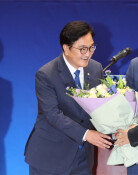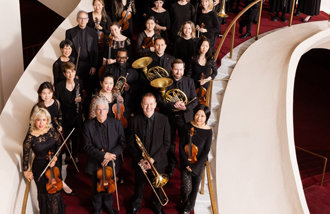Power Twitterians
TGIF. This is not the acronym of the family restaurant chain TGI Friday but a newly coined term that refers to the social networking services of Twitter, Google, iPhone and Facebook collectively. Writer Malcolm Gladwell said the role of social media such as Twitter and Facebook was exaggerated in the course of the democratization of North Africa, but their influence cannot be ignored in light of this week`s Seoul mayoral by-election.
Tweet Mix, a Twitter analysis service, studied the number of Twitter messages that mentioned mayoral candidates Na Kyung-won and Park Won-soon between Oct. 10 and 25. Of the messages, 530,000 mentioned Na and 450,000 mentioned Park. Considering general trends, Facebook has posted faster growth than Twitter, but Twitter took off in the wake of the election due to its stronger capacity to raise awareness of issues and circulate messages. While the number of Twitter messages on major candidates reached 95,700 (including overlaps) in the April 27 by-elections, the figure soared to 985,000 in Wednesday`s by-elections. This represents a 10-fold increase in the volume of Twitter messages in just six months, and Wednesday`s by-elections deserve the nickname "Twitter elections."
Sitting at the center of this trend are power Twitterians who wield immense influence over followers. They include novelists Lee Oe-soo and Kong Ji-young, Seoul National University professor Cho Kook, social critic Jin Joong-kwon and entertainer Kim Je-dong. Due to their aggressive activities, people in their 20s, 30s and 40s voted en masse and helped elect Park Won-soon as Seoul mayor. According to theories on networks, a network linking people who are strangers to each other is social capital that generates massive added value. In a hierarchical society with a pyramid form, the person in power sends unilateral messages, but in a society of horizontal networks, people share messages with each other. Hence, a change in network inevitably brings about a power shift.
The existence of power Twitterians effectively verifies that a network is not egalitarian either. This constitutes a phenomenon in which just a few producers of messages wield massive influence. People do not demand accurate information from social networking services. People follow a person online to buy goods, watch movies and vote because they like the person. What is important is a relationship, not the means such as Twitter or Facebook. If a conventional politician repeatedly pledges to use social networking services but fails to recognize this fundamental element, he or she is doomed to be ostracized by the public.
Editorial Writer Chung Sung-hee (shchung@donga.com)







